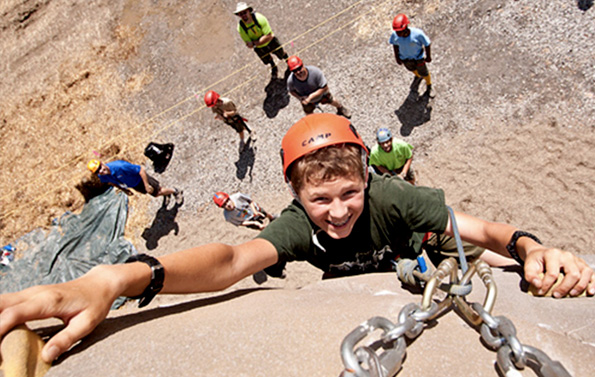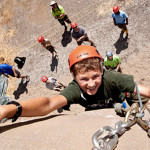I remember learning, some years ago, that the word “excellence” was originally used to refer to someone who was good at many different things (the Greek hero Odysseus, for example, was considered “excellent” because he was a great athlete and also a great ruler). Over the course of the last few centuries, this word has transformed to describe someone who is unusually gifted at a single thing. I suspect that this evolution mirrors a wider social shift, away from valuing the “renaissance man” to valuing the “expert”.
I can say that, personally, I am saddened by this change. I know that personally, my life has been made infinitely richer by my efforts to excel at many different kinds of things. In addition to making me a better teacher, it has also made me more curious, and has given me a foundation in many different disciplines, which I can use to more easily learn new things. That, to me, is the most useful thing I got from my Amherst education (where I took classes in 17 different academic departments). From my liberal arts education, I got enough foundational knowledge in enough disparate fields to be able to independently teach myself almost anything.
For all these reasons, my favorite thing to do as a teacher is to help students design their own inter-disciplinary curriculum. As one example, I once worked for a semester with 4 home-schooled high school boys. In searching for a kernel, around which we could build a curriculum, I asked them to generate a list of the most important things in our world today. After some individual reflection and group discussion, they all agreed that at the top of the list was ‘fossil fuels’. I asked them what they would need to know to fully understand fossil fuels and their role in our society, and from this (fascinating) conversation, we generated a list of areas of inquiry, which included:
– the chemistry of combustion and the physics of an internal combustion engine
– the geology and politics of hydraulic fracturing (fracking)
– the history of the Middle East after WWI
– OPEC and the economics of global energy markets
– the history of Standard Oil and its relationship with the American political process
– the environmental impacts of fossil fuels (using the BP Oil spill as a case study)
– the future of fossil fuels and renewable energy
– the history of the industrial revolution from the perspective of energy consumption
– fossil fuel-driven climate change (using rising sea levels as a case study)
– International efforts to tackle fossil fuel consumption
From this list, each student chose the two areas that interested him most and each became an expert in those topics. When we came together for our bi-weekly meetings, each student taught the others about his areas of expertise and we, as a team, made connections between the various areas of inquiry. After our 15-week exploration of this topic, each student had a profound, nuanced, and well-rounded understanding of the place of fossil fuels in our world.
Over the last ten years, I have also co-created curricula centered on:
Stars:
– the birth and life cycle of stars (astronomy and chemistry)
– the physics of nuclear reactions (solar fusion vs. atomic bombs)
– harnessing solar power (chlorophyll and solar panels)
– constellations and mythology
– Using stars to determine the size and age of the universe (cosmology)
– The role of stars in the search for extra-terrestrial intelligence
Money:
– the history of money and debt
– barter economies and alternative currencies
– the history of central banks and current role of the federal reserve bank
– global currency markets and financial speculation
– Opposing perspectives on capitalism: Karl Marx and Adam Smith
– The digitalized future of money (debit cards and Google wallet)
– The financial crisis of 2007
– The greatest financial crimes of the last century
Love:
– The neurochemistry of attraction and mating
– The birth of chivalry and romantic love in the Middle Ages
– The poetry of love (from Shakespeare to the Beatles)
– Courtship and mating rituals in the animal kingdom
– Famous crimes of passion
– Evolutionary biology’s perspective on love and mating
– The debate over marriage equality
– Newton’s universal law of gravity






